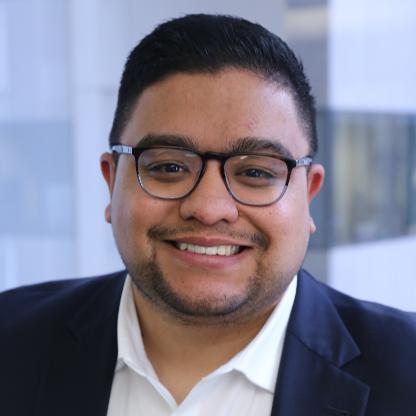It was at some point in between meeting with the President of the Nike Foundation and planning a time to talk with the governor of Oregon that Jonathan Garcia (BA ‘11, MA ‘12) found out he landed a spot on Forbes’ 30 Under 30 list for Education.
Garcia has dedicated his life and career to shedding light on the power of education in the lives of students across the United States. Especially in his former role in the San Francisco Unified School District, leading strategy and fund development, and now in Portland Public Schools as the senior director for strategic partnerships and external affairs, the APU alumnus’ job is to encourage philanthropic and business leaders to equitably co-construct a reimagined public education where all students have the opportunity to thrive.
Q: What was your reaction when you found out you made the Forbes’ 30 Under 30 list?
A: I found out at 7 a.m. and I had a 7:30 a.m. meeting with the executives of major corporations here in Portland. As soon as I walked out of that meeting, I had a few minutes to call my parents and draft a few texts, one which went to President Wallace, before I went on my back-to-back meeting day. It was all surreal and humbling. This recognition came on the heels of some incredible work in the San Francisco Public Schools and on laughable conversations that no public schools leader had been on the list in prior years. I am proud to be the only public school employee on this year’s list and encourage Forbes to consider recognizing incredible innovators who are in the trenches educating our country’s children.
Q: Where does your passion for education come from?
A: I’m a first-generation high school and college graduate. The way that I think about education is the way I think about my life. My parents are undocumented immigrants from Mexico and came to the US in hopes of giving their kids access to opportunities and a thriving life. Despite a difficult upbringing, which included deep poverty, domestic violence and substance abuse, there were mentors and educators in my life that empowered me to build the skills and confidence to achieve dreams and goals for my future, through the power of an education.
I was inspired by my teacher Mr. Chavando, who I happened to have in first, second and third grade. I realized he played such a significant role in my life--building my sense of purpose and self, particularly as a Mexican-American boy. In fact, he was so instrumental in supporting my academic knowledge and skills development, I invited him to my APU graduation, which he gladly accepted. So when I think of Mr. Chavando and the countless other folks that played a significant role in my life, I think about my colleagues in public education and in public service who are providing hope and support to children, who like me, had challenges growing up.
Q: That narrative of first-generation students is becoming so much more prominent. What can be done to aid first-generation students to fulfill their potential?
A: First-generation students, and all kids generally, need the wrap-around services and support. I truly believe that ‘it takes a village,’ for kids to succeed, and it's even truer for first-generation students. We have to remember that first-generation kids and their families have not had to play inside our political and social systems, so for those of us who have learned how to or have generations who have navigated these complex systems, I think we should be held accountable for building the on-ramps and bridges so that first generation students and their families can participate. A huge reason I am in public education is because I want to build these on-ramps for students to thrive.
Q: How did your time at APU play into your success story?
A: I feel like I’m a community organizer at heart. I learned that at APU. I also learned that I have the ability to imagine the possibilities.
Q: Where do you see education going in the next few years? Where do you hope it goes?
A: When I think about the future of public education, I hope that we as a society--which includes civic, business, and philanthropic leadership--can rally around a vision and a social movement that truly invests in public education. This means that private business and philanthropy will serve alongside our teacher unions and elected officials to catalytically transform how we in the US invest in education.
As the head of Strategic Partnerships for Portland Public Schools, my role is to create that spark that gets families, educators, businesses, funders and community members inspired to support, contribute to, and hold themselves accountable for better outcomes for all public school students.
Q: What is your favorite part of your job?
A: What’s exciting for me, what I love about my job, is that I get to be a thought partner with different stakeholders in being innovative, being bold and imagine new posibilities. Public Schooling hasn’t changed much since the 1800s; and so I get to sit across the table with leaders who for an hour or two, can imagine new possibilities for how our children learn. Isn’t that exciting?
Q: What’s next for you?
A: I’ll be here in Portland for a while and invest my heart and energy to reimagine public education here--alongside our educators and in partnership with the Portland community. I imagine that in the future, I could serve in a strategic capacity at the national level to help transform public education.
-- Regina Ender
